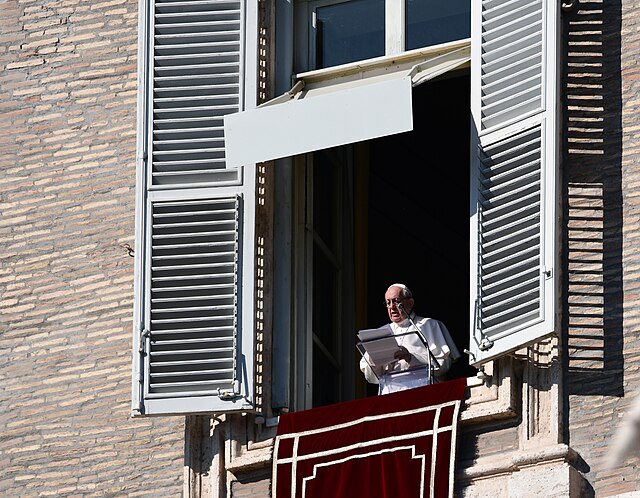Ave Maria is a 1964 motet by Franz Biebl, composed for double choir, a large four-part choir and a three-part choir which can be performed by soloists. It is a setting of part of the Latin liturgical Angelus prayer, which contains the Ave Maria as a refrain. The composition was originally written for men's chorus, but the composer wrote arrangements for mixed choir and women's choir. The work and arrangements were published by Wildt's Musikverlag, first in 1964. The piece first became famous when a U.S. group, the Cornell University Glee Club, included it in their Christmas programs, and more famous when the Chanticleer ensemble made it part of their regular repertoire. It was published in the U.S. by Hinshaw and became one of the publisher's best-selling items.
Ave Maria from the Heures de Charles d'Angoulême
The Angelus is a Catholic devotion commemorating the Incarnation of Christ. As with many Catholic prayers, the name Angelus is derived from its incipit—the first few words of the text: Angelus Domini nuntiavit Mariæ. The devotion is practised by reciting as versicle and response three Biblical verses narrating the mystery, alternating with the prayer "Hail Mary". The Angelus exemplifies a species of prayers called the "prayer of the devotee".
The Angelus (1857–1859) by Jean-François Millet
Pope Francis during the Angelus Address in Vatican City, 2018.
Angelus bell being rung at Ermita de Nuestra Señora de las Angustias [ wikidata]




![Angelus bell being rung at Ermita de Nuestra Señora de las Angustias [ wikidata]](https://upload.wikimedia.org/wikipedia/commons/thumb/9/9d/The_Angelus_bell_being_rung_at_La_Ermita_%2827487529958%29.jpg/530px-The_Angelus_bell_being_rung_at_La_Ermita_%2827487529958%29.jpg)